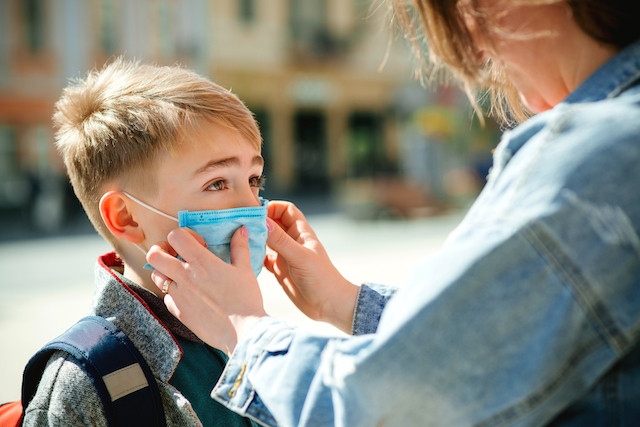During a press conference on Tuesday, education minister Claude Meisch (DP) announced the ministry will send questionnaires to parents around the country starting on Wednesday.
The survey aims to examine the individual childcare needs of parents in light of the fact that once they reopen, class sizes will be halved with learners alternating attendance on a weekly basis and then only in the mornings.
Additional childcare options will be created for those who need them. They will be hosted in communal buildings, such as sports halls and music halls. The minister said the cost of these additional facilities should not be borne by parents.
Meisch said that the results of the parental questionnaire will be analysed and discussed with communes and other stakeholders to find a solution.
“Everyone is looking forward to returning to a real normality. This will be the first step,” he said. “The journey to school is long and complex but very important for our children.”
The first week back
During the first week that primary schools open, from 25 May, the “A” group will attend classes for three days and the “B” group for two days, in order for them to reconnect with their teacher and reacclimatise before the half-term break the following week.
During the afternoons when no lessons are held or when students' group is not attending lessons, schools and communes are expected to offer “maison relais” or after-school facilities. Where this is not possible, the government will make it possible for parents to take the extraordinary parental leave that was created when schools took classes online from 16 March at the start of the pandemic.
Early years
The issue of how to apply anti-contagion measures to the youngest learners has been the subject of much debate in Luxembourg in recent weeks. Meisch said that for these children to go without school for six months could set them back in their learning journey. The education ministry, along with the health ministry, is examining other measures to limit social contact between this age group. “I think we will find them in the coming weeks,” he said.
School transport
Communes which currently manage school bus transport will be responsible for finding additional solutions so that learners can respect social distancing while on board. It could be that buses take two trips or that they hire several buses to make the journeys, for instance. Meisch said that additional resources would be made available for whatever steps are taken. On school buses operated by the RGTR regional bus network, communes are responsible for liasing with the network.
Youngsters will be expected to wear a face covering on all public transport. The government is issuing elasticated tubes or buff-style neckwarmers for this purpose.
Teaching staff
Director of local authority union Syvicol Emile Eischer estimated that schools would need to increase their staff numbers by around one-third to cope with the new measures. Meisch said that a reserve of teaching and monitoring staff could be found among students, youth workers and adult education instructors, for instance, in addition to asking existing part-time staff to increase their working hours. He added that only once the results of the parent questionnaire were collated would he know exactly how many staff would be needed and where.
Extraordinary parental leave
The parental leave option created at the start of the crisis to enable dual working parent families to take paid leave to care for their child during lockdown will be stopped from 25 May except in certain circumstances.
To avoid vulnerable grandparents being asked to care for children when there is no school and while parents are working, this leave will be available to one of the two working parents when there is no childcare option outside of class hours.
It will also be available to one of the two working parents of a child whose health situation makes them vulnerable. In this instance, it is for a doctor to decide if an individual’s poor health puts them at greater risk of infection.
“We’ve not yet decided who is and isn’t considered vulnerable. It is for parents and teachers to take the initiative for someone considered vulnerable. They must go to a doctor and ask for a certificate," Meisch said.
